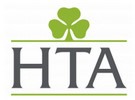On Monday (20 May), the Horticultural Trades Association (HTA) hosted a webinar on the Convention on International Trade in Endangered Species (CITES) in collaboration with APHA, Defra, and Border Force officials.
Following the success of last year's webinar, initiated by the HTA due to increased reports of compliance challenges, the webinar once again attracted over 100 participants. The session aimed to provide the latest information on regulations for those involved in the movement of trees, plants, seeds and bulbs covered by CITES controls across the UK border. Participants learned about the rules, how to ensure compliance and future developments in policy and system processes.

Following last year's webinar, the HTA communicated to the UK CITES-responsible bodies the challenges experienced by the sector and the desire to see improvements in user experience. This included a faster processing of import permit applications for live plants and the full digitization of the CITES application permit process. Attendees also expressed concerns over the handling and destruction of seized plants. While the authorities have made some improvements in these areas, challenges remain in streamlining the processes and communicating the correct information to traders and agents.
Sally Cullimore, HTA Technical Policy Manager, said: "The high level of attendance and engagement at the HTA's webinars shows the demand for more information and streamlined processes when trading legitimately in artificially propagated CITES plants. It has also highlighted the impact of the requirements on garden centers for common houseplant species like orchids and cacti, as well as carnivorous plants and aloes. CITES checks and permits are an additional piece in the puzzle of cross-border trade and need to be looked at as part of the overarching UK approach to the plant trade. We received welcome news that Defra plans to reform policy and legislation, and we look forward to helping shape that in the near future."
For more information Horticultural Trades Association
Horticultural Trades Association
www.the-hta.org.uk
